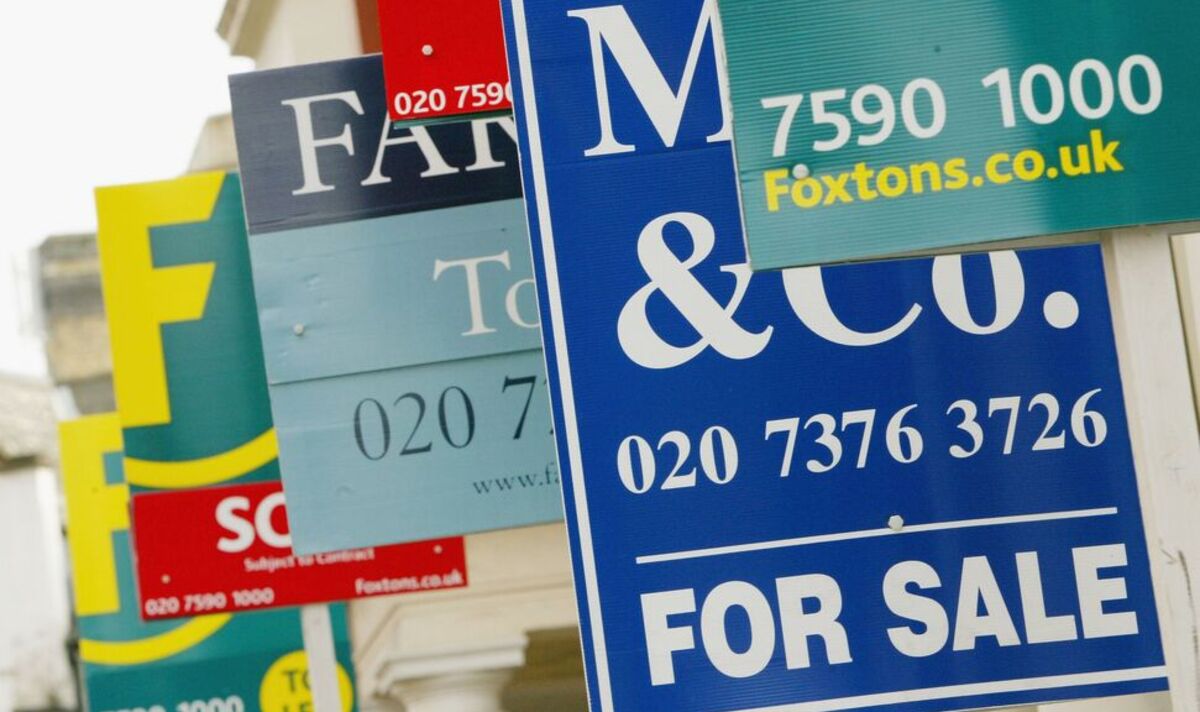
Soaring mortgage rates and stubbornly high living costs left the housing market in a state of upheaval this year, creating uncertainties for buyers and sellers alike. But hope may be on the horizon as 2024 may bring a more “reasonable” market, an expert has said.
Mortgage interest rates, which have been sent spiralling following 14 consecutive Base Rate rises, are averaging over six percent for fixed rates and 8.5 percent for variable rates, as reported by Uswitch.
Meanwhile, the UK’s Consumer Price Index (CPI) rate still remains high at 6.8 percent, putting significant pressure on affordability and squeezing households’ finances.
These factors have all led to a dampening of demand to buy property and the impact of this has been subsequently felt across the market. Following years of month-on-month increases, house prices dropped by 5.3 percent in August compared with the same month last year, reflecting the biggest annual fall since 2009, according to Nationwide.
But what might this year’s cool-down mean for next year’s market? Express Money spoke to experts to find out their forecast.
Kate Steere, deputy editor and mortgage expert at personal finance comparison site finder.com told Express.co.uk : “It’s clear that soaring mortgage rates have led to a cooling of the housing market this year. Many buyers are remaining cautious and waiting for them to settle.
“With rates forecast to remain high for some years to come, affordability will continue to be an issue in 2024, despite the lower house prices. With such a dramatic increase in mortgage rates in the past 12 months, buyers are still going to be concerned about monthly repayments – even if prices are cheaper.”
Ms Steere added: “This cautious approach will mean that demand is likely to remain soft, particularly when compared with the housing market in 2021 and 2022.”
Max Hancock, founder of The Good Homes Project, said that while this year’s cooling market may impact house prices next year, vendor expectations are “very strong” and likely “still buoyed” by their perceived growth in equity during the Covid ‘boom’.
“Competition at the lower end of the market (first-time buyers and those buying property around the ‘average’ UK house price range) will continue to be strong.”
Mr Hancock continued: “It’s worth noting that maybe the sales market is reverting to a new normal, where properties are being priced and subsequently sold reasonably, with agents less likely to add silly money on top which might have worked 12 to 18 months ago.”
Mr Hancock said the upper end of the market “might cool off somewhat”, owing to the “reduced competition” by those looking to upsize who have probably already done so.
He added: “Whilst average prices might fall over the next 12 months, it’s probably more of a mean reversion than a major change.”
Assessing whether or not higher mortgage interest rates may impact this, Mr Hancock said: “The majority of rate rises have been absorbed by buyers, and the headroom from where they are now to where they’re expected has been priced in by lenders and subsequently buyers.
“General household cost pressures might have an anecdotal impact, but typically those who are thinking of moving seem to be well equipped to do so.”
However, Ms Steere noted that further anticipated Bank of England Base Rate hikes are likely to have a “knock-on effect” on affordability into next year, which may see another demand shift.
She said: “Buyers who have been used to lower rates will need to re-address what they can realistically afford in this new climate. Demand for different properties is likely to shift, with detached houses becoming less popular as people look for smaller, less expensive places.”
When could we expect mortgage rates to fall?
Mr Hancock said: “The Bank of England is more than likely to raise the Base Rate further at the end of this month, effectively pushing up the prices for some mortgage holders. Recent inflation reduction news is spurring the opinion that what they’re doing ‘is working’ and another rate rise will, alongside putting another the nail in the coffin, likely have an impact in reducing inflation further.”
That said, Mr Hancock noted: “Markets have seemingly priced in this rate rise already. Whilst variable rates will rise in conjunction with any base rate increase, the recent rate increases have been matched with lowered rates on SONIA swaps (the price at which banks borrow from one another, and which underpin mortgage pricing) – suggesting some optimism that we might have (almost) reached the peak.”
A number of high street lenders continue to reduce their fixed rates, which Mr Hancock said “is a trend that will likely continue”.






